Farne island reopens after two-year bird flu closure
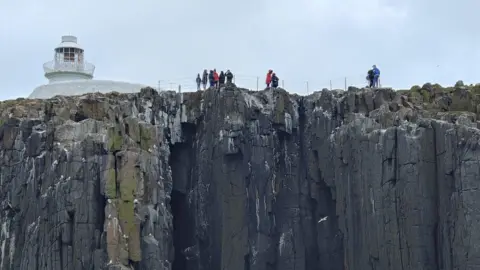 William Shiel
William Shiel A popular tourist island, home to thousands of seabirds, has reopened to visitors after two years.
Landings were stopped by the National Trust on the Farne Islands off the Northumberland coast, after an outbreak of bird flu which killed thousands of birds.
Inner Farne has opened, but Staple Island is to remain closed.
Area ranger for the National Trust Sophia Jackson said: "We are keeping everything crossed the birds are building resilience to bird flu."
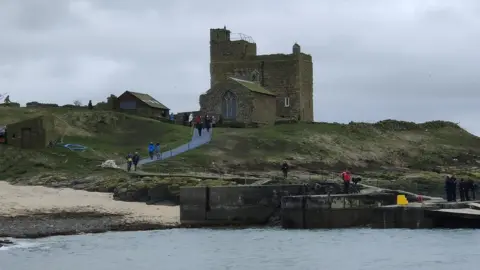 William Shiel
William Shiel The Farne Islands are a National Nature Reserve in England and an internationally important home to approximately 200,000 seabirds, including puffins, Arctic terns, and kittiwakes.
The colony was hit hard by bird flu in 2022, with rangers collecting more than 6,000 dead birds, and more than 3,000 last year.
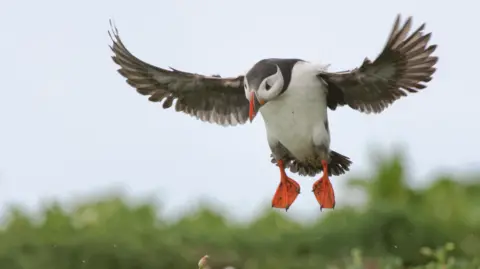 National Trust images
National Trust images "The last two years have been really tough, and we are really looking forward to welcoming people back to the islands," Ms Jackson added.
"But the health of our precious seabirds has to be our priority, so we do have a ‘closure plan’ that we’ll implement, should bird flu return.”
Inner Farne is the only island to open to visitor landings in 2024 while limited openings are trialled by the National Trust.
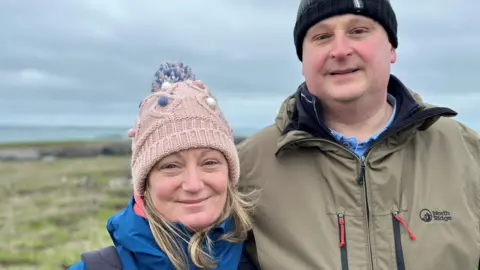
John and Emma Greenwood, from Leeds in West Yorkshire, said it was a "privilege" to be among the first visitors in two years to such a "special place".
"It was better than I expected, so beautiful and incredible, and to be in the middle of all these puffins and wildlife is amazing," Mr Greenwood said.
"It's been such a treat. I was expecting to see just one puffin but they are everywhere.
"It's an amazing place and we are so lucky to be here."
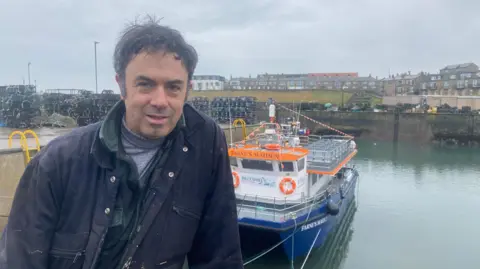
William Shiel, who runs Billy Shiel's boat trips from Seahouses Harbour, said it was a relief.
"People have been waiting for it to reopen, we had one lady come along who comes quite a bit, so it was great to see her again," he said.
"If the weather settles down, we'll have a good summer, there are a lot of people wanting to get on the island and now, it's just great it's available to them and they can see the birds close up."
Follow BBC North East on X (formerly Twitter), Facebook and Instagram. Send your story ideas to [email protected].
